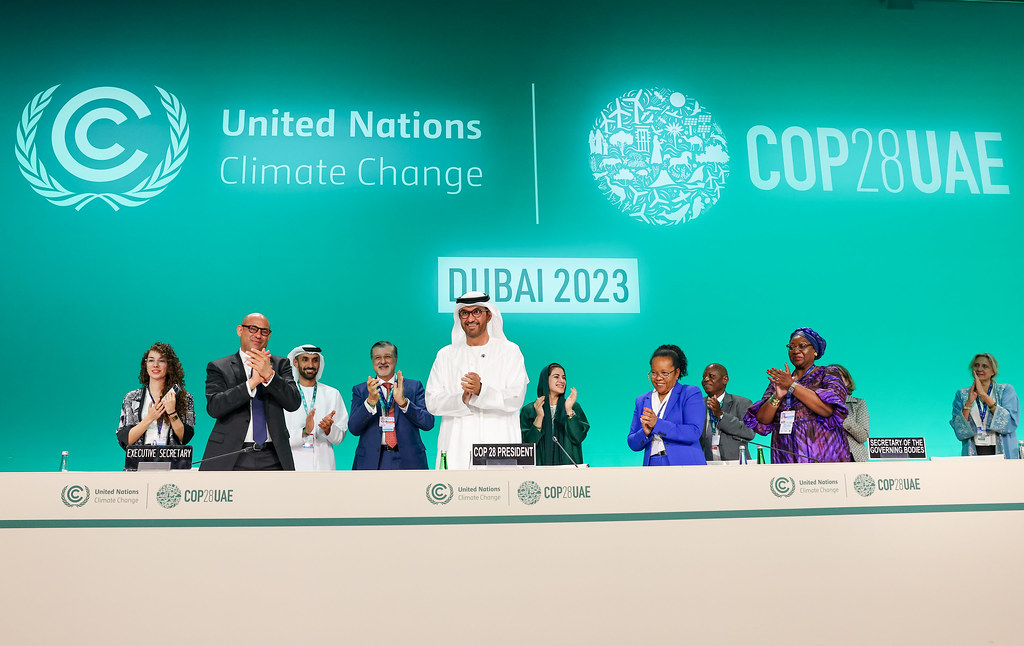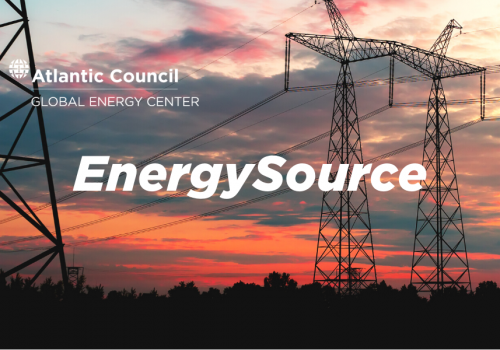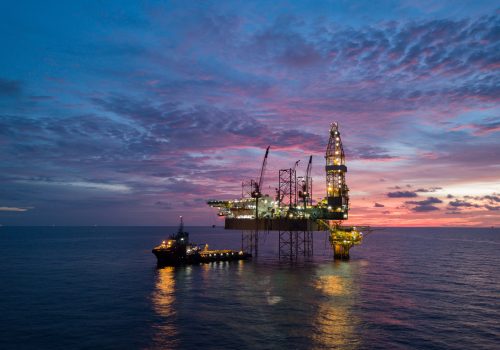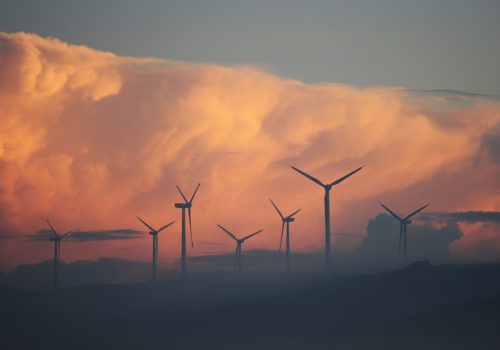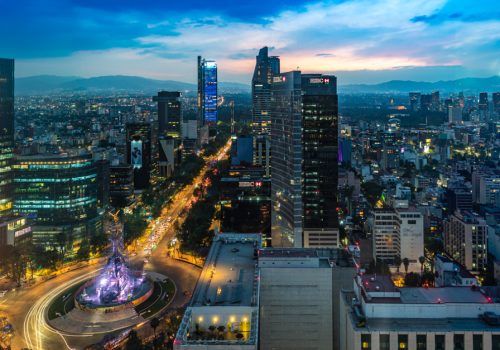The final declaration from COP28, “the UAE Consensus,” is transformational in its reflections on fossil energy’s role in contributing to climate change, but with time this climate conference won’t simply be remembered for “landmark” text. If all goes to plan, the COP28 Presidency’s efforts to foster an inclusive platform for promoting private and public actions that reduce global emissions will be its legacy.
The “success” of COP28 was never going to be measured by unrealistic expectations around “phasing out” fossil fuels—a benchmark promoted by the European Union and small island nations severely at risk of global temperature rise. Despite over $3.5 trillion in financing for renewable energy over the past decade, oil, gas, and coal remain stubbornly anchored in the global energy mix, representing around 80 percent of energy consumed. The high reliance on conventional energy resources for their economic growth and political stability unequivocally placed China, India, and Saudi Arabia at the vanguard of a block of countries opposed to any negotiated outcomes at COP28 that locked in a “phaseout” or “phasedown” of specific energy sources.
STAY CONNECTED
Sign up for PowerPlay, the Atlantic Council’s bimonthly newsletter keeping you up to date on all facets of the energy transition.
Behind the scenes, however, the feverish and ultimately successful push for a diplomatic compromise temporarily overshadowed what COP28 has already accomplished—a global reduction in energy-related greenhouse gas emissions by 2030 of around 4 gigatonnes of CO2 equivalent. This achievement is the product of around 130 countries signing up to triple global renewable power capacity by 2030 and double the annual rate of energy efficiency improvements every year to 2030, coupled with commitments by the oil and gas industry to zero-out methane emissions and eliminate routine flaring.
Admittedly, the potential emissions reductions achieved during COP28 fall short of the ambitions outlined in the Paris Agreement (the International Energy Agency assesses commitments at COP28 represent 30 percent of what is necessary to “keep 1.5 alive”), but the fabric of the United Nations Framework Convention on Climate Change process has been permanently altered. Attendance at the conference exploded, growing to nearly 100,000 at COP28—a far cry from the approximately 4,000 participants in 1995 during the first COP and a more than threefold increase since the Paris Agreement was reached in 2015. The vibrant business environment in Dubai represented a growing subtext to the formal climate negotiations and, while met with mixed reviews, the inclusion of industry hints at the fact that the economics of the energy transition are beginning to catch up to policy.
As one senior European official expressed to me, COP is the “new Davos” for the energy transition. It took only one lap around Expo City Dubai, the venue for COP28, to confirm her intuition. COP28 was brimming with C-suite executives, technologists, financiers, and project developers—those who will have to deploy an estimated $150 trillion necessary to achieve the 1.5 degree Celsius goal by 2050 and whose support is critical in overcoming the infrastructure, regulatory, and workforce challenges inhibiting an accelerated energy transition.
The inclusivity on display at COP28 marks the beginning of a new phase for climate action. Industry has the resources, finance, and technical prowess to realize the ambitions set out by policymakers. By acclimating the private sector to civil society’s expectations for transforming our energy system, a new social license to operate is beginning to form.
There is little doubt that, like the UAE, President Ilham Aliyev will welcome industry to the conference when Azerbaijan hosts COP29 next year. The onus is on businesses to demonstrate their sincerity about addressing global emissions, starting by matching their commitments with investments and projects that signal they belong at the heart of global climate dialogue.
It took twenty-one COPs for countries to universally commit to reducing greenhouse gas emissions, and twenty-eight to bring along industry. My suspicion is that between now and when COP35 is hosted in 2030 we’ll make progress in closing that gap, starting next year in Baku.
Landon Derentz is the senior director and Richard Morningstar chair for global energy security of the Atlantic Council Global Energy Center
Meet the author
Related content
Learn more about the Global Energy Center

The Global Energy Center develops and promotes pragmatic and nonpartisan policy solutions designed to advance global energy security, enhance economic opportunity, and accelerate pathways to net-zero emissions.
Image: UNFCCC Formal Opening of COP28 during the UN Climate Change Conference COP28 at Expo City Dubai on November 30, 2023, in Dubai, United Arab Emirates. (COP28/Christopher Pike, Flickr, CC BY-NC-SA 2.0) https://www.flickr.com/photos/unfccc/
